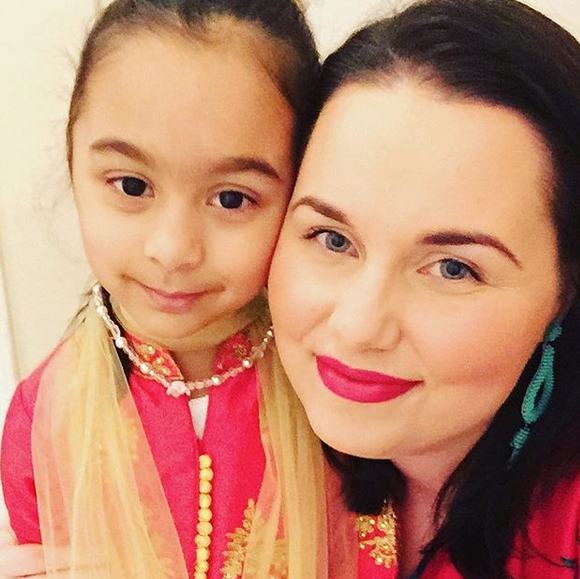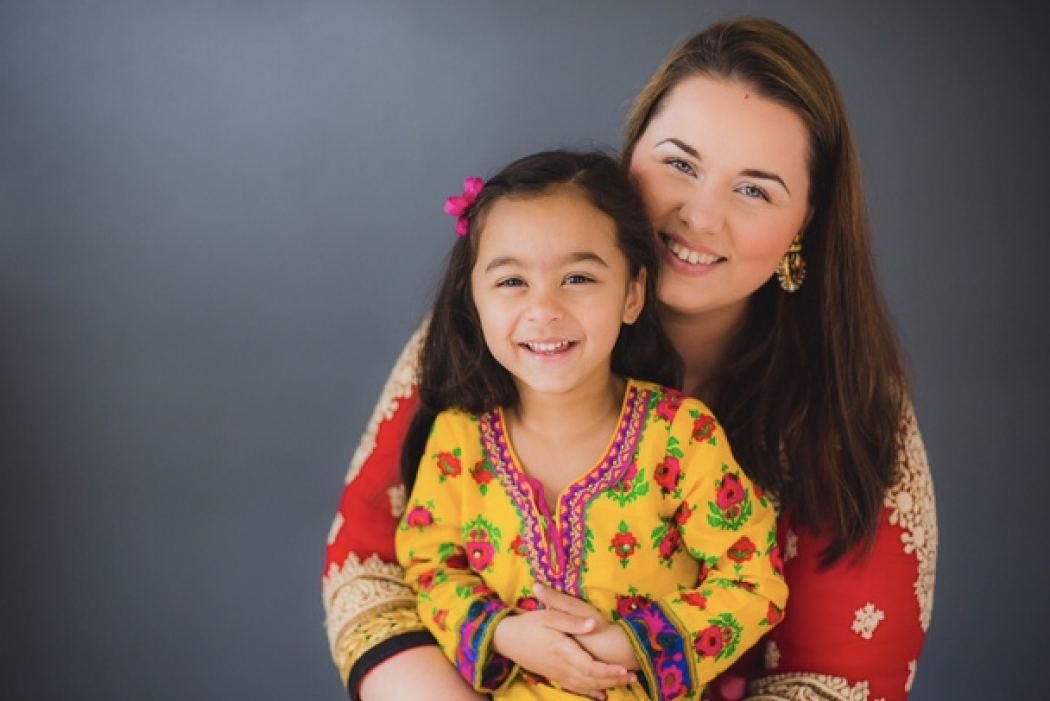Being in an intercultural relationship has taught me so much and has changed the way I live my life. It has opened up my world to different ways of life, traditions, celebrations, and it has also made me more sensitive to stereotypes, prejudices and racism. I thought I knew everything about being in a cross-cultural relationship, as I learned how to confidently navigate through it. And then we had kids. As any parent can attest, becoming a parent is basically like having your socks knocked off of you! Everything you think you know gets reconfigured. In essence, becoming a parent and raising children is life-changing.
Raising kids that are of mixed heritage is venturing into completely uncharted territory. There is no guidebook. We are, in fact, raising a new generation.
Here are a few things that I’ve learned on the way:
1.Allow your children to find their own identity
Avoid labelling them, especially when it comes to their looks. If they look more like one culture than the other, don’t state it out loud. Let them explore and define their own identity. They may lean more towards one culture or another – let them. Don’t define them; let them define themselves.


Photo credit: Madh_mama Instagram
2. Don’t negatively speak about your partner’s culture
Just don’t. You’re not going to love all the aspects of your partner’s culture and that’s perfectly normal. But please, don’t discuss any negative feelings in front of your mixed child. Because we view our kids as part of us, sometimes we feel like we can say these things. However, when you’re raising mixed kids you have to be conscious of the things that you are saying to them about your spouse’s culture – because that’s part of their heritage too.
3.Their experience of race might be different than yours
Mixed kids come in all shapes and colours and if you’re in an interracial relationship, chances are your child’s experiences of race are going to be different than yours. White people like to pretend that racism doesn’t exist because they themselves haven’t been on the receiving end of it. Don’t do this.
4.Have open conversations about race and culture
And especially, history. Talk about the struggles your family had to face. Talk about the struggles on the news. Be open to having conversations with them about different races, cultures, and be there to listen to them if they have questions or statements as they discover their own identity. It’s healthy to talk about all these things and they shouldn’t feel like they should be ashamed to bring up these topics. Also, children notice race and differences way earlier than you would think. Mixed children are going to be asked about their race a lot. People are curious. Have open and honest conversations even if it feels a bit uncomfortable for you personally.
5.Your kids might not look like you
Sometimes mixed kids take after one parent, both, or neither. Children’s appearances change so much over time, and they may have moments where they don’t look like your biological child. Make peace with that. It happens. Don’t get angry or grimace if someone mistakes you for the nanny, just confidently say – “I’m their mom, and families come in all colours.”
6.Help your kids love the skin they’re in
Mixed kids are going to get their appearance discussed a lot – there’s not much you can do about it. The only thing you can do is teach them to love themselves exactly how they are. Tell them they’re perfect and they don’t ever have to change a thing about themselves. Self-esteem and the art of being comfortable with oneself is a skill that they will have to develop on their own, but there are certain things you can do to encourage it in a positive direction from the start.
7.Have diverse multicultural interests
It’s one thing to preach multiculturalism and it’s another thing to actually do it and integrate it to your life. You have to walk the walk, not just talk the talk. If you think multiculturalism is cool, amazing and interesting then what are you doing about it in your life? Our kids model our behaviour more than what we say. If you want them to be global citizens, start with yourself first. Make friends with people from all different cultures. Show genuine interest in their culture and learn about it. Celebrate festivals – beyond the ones that you celebrate in your home. Living in a bicultural home is not enough – kids, especially mixed kids, need to be exposed to more than that. If you don’t live in a diverse area, then travel or watch multicultural movies. Read books by different authors, and especially read books to your children with characters that are not all white.
8.Get involved in their school/community
You can’t expect people to be educated about your family’s culture if you only keep it with the four walls of your home. If you find yourself surrounded by a lot of people who don’t know about your culture, then get involved in your community and educate people. This is the best way to combat racism, ignorance, and micro-aggressions. Chances are people are already curious about it anyway. Ask if you can do an educational demonstration at your child’s school for a cultural holiday that you celebrate at home, and have your child help assist. Throw a party at a community centre and invite the neighbourhood. Invite friends over to try a home-cooked meal – a family recipe. For your child’s birthday, give our goody bags with a cultural significance.
(Visited 232 times, 1 visits today)



There are no comments
Add yours